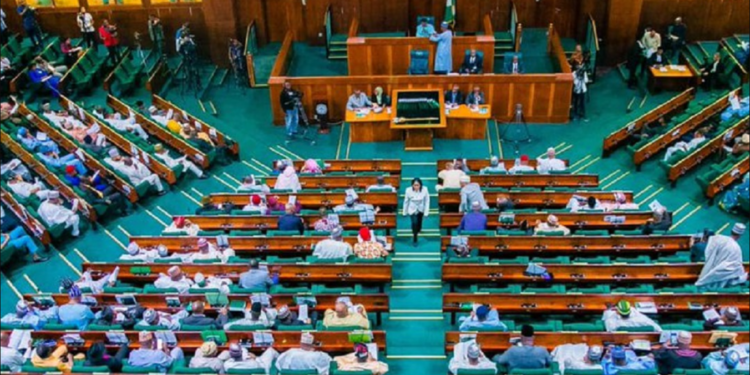Amid humongous amount collected by states and local government in 2023, also bourged by the subsidy removal but worsening poverty,
the House of Representatives has tasked its Committees on Special Duties, National Planning, and Economic Development to investigate the utilization of increased allocations disbursed to state governments by the Federal Account Allocation Committee (FAAC).
Additionally, the Committee on Inter-Governmental Affairs has been directed to participate in the investigation and furnish a report to the house within four weeks for further legislative deliberations.
This decision follows the adoption of a motion of urgent public importance by Rep. Ademorin Kuye (APC-Lagos) during the session in Abuja on Tuesday.
Increased FAAC allocation due to subsidy removal
In his motion, Kuye argued that over the past seven months, states and local government areas have seen a significant increase in funds from FAAC following the removal of subsidies.
He noted that in 2023, states and local government areas received N6.57 trillion, which doubled the N3.16 trillion received in 2022. However, despite the surge in revenue, over 14.2 million citizens continue to struggle with poverty.
Kuye pointed out that despite the increased funding, some states still face challenges in salary payments, effective management of public institutions, provision of public transportation, and access to clean water.
According to him, “It is worrisome that some state governors have brazenly refused to complement the Federal Government’s poverty amelioration efforts and are not driving the necessary economic transformation.”
“If the states are doing the needful, that would have reduced the sufferings of Nigerians,”
What you should know
In the wake of the fuel subsidy removal by the federal government, the FAAC allocation increased significantly. For example, in June 2023, the FAAC allocation rose by about 100% to N1.9 trillion necessitating the President to save the surplus as Infrastructure Support Fund for states.
Also, the federal government, states and LGAs across the country shared around 51 trillion as exchange rate gain in 2023- a significant rise in the nation’s history.
But metrobusinessnews.com (MBN) investigations reveal that some of the Governors are yet to implement the N30, 000 minimum wage, but rather paid percentage salaries and pension to their workers.
The Economic and Financial Crimes Commission (EFCC) is currently prosecuting and has in 2022
arraigned Ali Bello, a nephew to former Kogi State governor, Yahaya Bello, for a N10 billion fraud.
ALSO READ:Investors Lose N183Bn On Profit-Taking In PZ Cussons, Guinness Nigeria, Sovereign Trust Insurance, 27 Others
EFCC spokesperson Wilson Uwujaren, then in a statement said that Bello was arraigned alongside other defendants before James Omotosho of the Federal High Court, Abuja.
They are Dauda Sulaiman Abdulsalami Hudu, the cashier of the Kogi State House Administration, was said to be at large.
The defendants are accused of fraudulently withdrawing over N10 billion (N10, 270,556,800), from the Kogi State treasury, which they allegedly delivered to a bureau de change operator, Rabiu Tafada, in Abuja, to keep or change to foreign currencies for personal gains.
Bello, first defendant in the matter is the current Chief of Staff to Governor Usman Ododo of Kogi State and a nephew of his predecessor Yahaya Bello.













